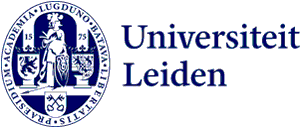
Veni for Verena Meyer: 'Not every religious manuscript is meant to be digitised'
Now that it is becoming increasingly easy to digitise texts, it seems almost obvious to do that with everything that has ever been written. University lecturer Verena Meyer thinks that is too simplistic. ‘We need to look more closely at the political and cultural effects of digitisation.’
When we speak at the end of the summer, Meyers' Veni project is about to begin. 'The number of digitisation projects has exploded worldwide in recent decades,' she says. 'The idea behind this is that we are doing something good: we are ensuring that the text is preserved and that it remains widely accessible. What we don't consider is whether the manuscript was actually intended to be preserved or to be widely accessible.'
Conflicting views
This question is particularly relevant in the case of religious manuscripts, which sometimes occupy a special position within their religious community. Meyer will therefore focus her research on Islamic Indonesia. ‘In Indonesia, there are many conflicting views on manuscripts and textuality,’ Meyer explains. ‘Since colonial times, the view that texts should be accessible has been quite dominant. As a result, many Indonesian institutions promote digitization. At the same time, however, you also see traditional Islamic and local views on the handling of manuscripts, which may well oppose the idea of open access.’
A case in point is the treatment of the ‘Javanese Book of Kings’. A copy of this work from Leiden University Library was digitised in 2013. The original, however, is kept under lock and key in Indonesia and is only accessible to the Islamic ruler. 'Access to that work is his privilege,' says Meyer. 'This is partly based on the idea that other people might be overwhelmed by the powers of the manuscript. Traditional Islamic schools also regularly voice objections that sacred heritage is not intended for the general public. Who knows what terrible things might happen if manuscripts were simply digitised.’
‘Look closely at the effects’
Should we then stop digitising altogether? No, says Meyer. ‘In my experience, digitisation is generally appreciated in Indonesia too. So I wouldn't want to portray it as a neo-colonial practice that we need to stop as soon as possible. But I do think we need to look more closely at the effects of digitisation. What are the political consequences, for example? And what about the cultural effects? Once we have a better understanding of these issues, we can make better decisions.’
There is more nuance possible than simply digitising or not digitising. Meyer: ‘If a manuscript contains a talismanic spell, for example, you could blur it and provide an explanation of what the spell means and what its effect might be. It is then up to the reader to choose whether or not to click further.’
